For a number of years, groups of Scots boys have been travelling to places such as Vanuatu, Papua New Guinea and the Solomon Islands, where they have worked in partnership with churches, schools and village communities during these service learning trips.
Apart from providing practical help to the communities we visit – such as assisting with building projects, classroom teaching, and delivery of resources – these trips are enormously beneficial to the boys who participate.
In what ways do the boys benefit? There are numerous ways. Here are seven benefits of service learning trips I have observed through watching boys learning and growing through their involvement in these programs.
Developing teamwork
Service learning trips provide unique opportunities for working together in unfamiliar and challenging circumstances. Working with one or two other students to deliver a lesson in Mathematics, helping one another to cope with uncomfortable weather or living conditions, or finding ways – perhaps under the scorching sun – to efficiently undertake maintenance work on a cyclone-damaged building, are some examples of situations where teamwork can be developed.
Practising leadership skills
Boys develop valuable skills in leadership and initiative in service leanring trips. They are sometime required to speak about their life at home to a village community with little understanding of urban society, or teach a class of early primary school students. Other examples where leadership skills are called for include guiding younger members of their own team, or making decisions around program adaptations or forced itinerary changes.
Growing a sense of appreciation
Invariably, boys who participate in service learning trips develop a deeper appreciation of the privileges and opportunities they enjoy. Buying bottled water from the shop rather than drinking freely from the tap, learning to cope without internet access for extended periods of time, living in a community that has electricity for less than three hours a day, and meeting primary school children who get themselves to school each day by paddling a canoe from a neighboring island — these experiences help our boys to appreciate more fully the comforts we tend to take for granted.
Understanding other cultures
On service learning trips, boys gain insights into some striking differences between their own culture and the one in which they are being immersed. In Vanuatu, for example, Scots boys get to live in a residential school community where the boys and girls are out of bed soon after 5:00am to clean and tidy their school grounds in preparation for the day. They meet families who earn almost no money, but who survive by growing vegetables and catching fish. They learn about climbing coconut trees, making good use of everything the environment has to offer, and the role of the Christian faith in shaping school and community life.
Developing core values
When boys spend time in communities where there is so little in the way of material wealth, yet so much in the way of joyful and purposeful living, it forces them to reassess some of their values and priorities. They begin to reflect upon what they might learn from these communities about humility, generosity and human dignity.
Enlarging the vision for transformative possibilities
Service learning trips help to expand a boy’s vision by taking him beyond what is familiar and comfortable and immersing him in an environment that is quite foreign and challenging. At the same time, such an experience can spark a boy’s interest in reflecting upon what he might do with his life: how he might one day use his power, his position, his wealth, his skills, and whatever else is at his disposal to make a positive difference in the world.
Finding joy in helping others
Visiting communities that are so remarkably hospitable and gracious toward us is humbling. It causes one to think that in reality, whilst we may be going to these communities with a desire to help them, we end up being the ones who gain the most. Nevertheless, such is the joy on the faces and in the hearts of those we meet on these trips, our boys find joy in contributing to their lives in some ways as well. Our contribution is not so much the financial and practical assistance we provide – valuable though that is – as it is the respect and affection we show towards these communities as they open their hearts and their lives to us.
To find out more about philanthropy and community engagement, download the latest edition of The Lion & Lang Syne.
Written by Reverend Conrad Nixon, Senior Chaplin at The Scots College.






